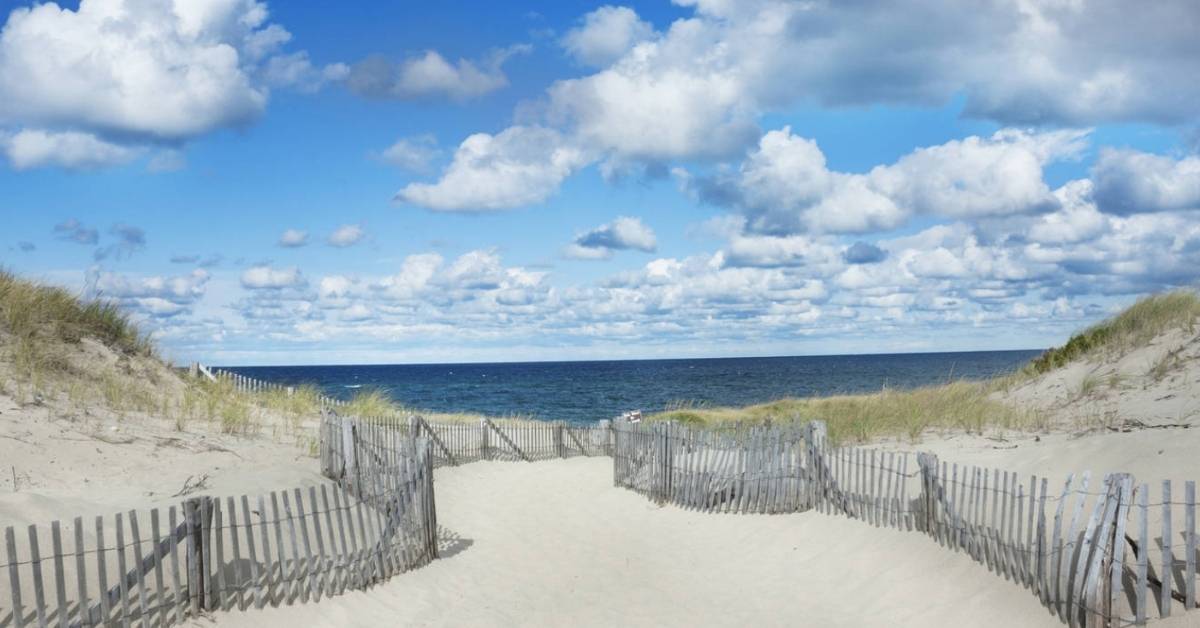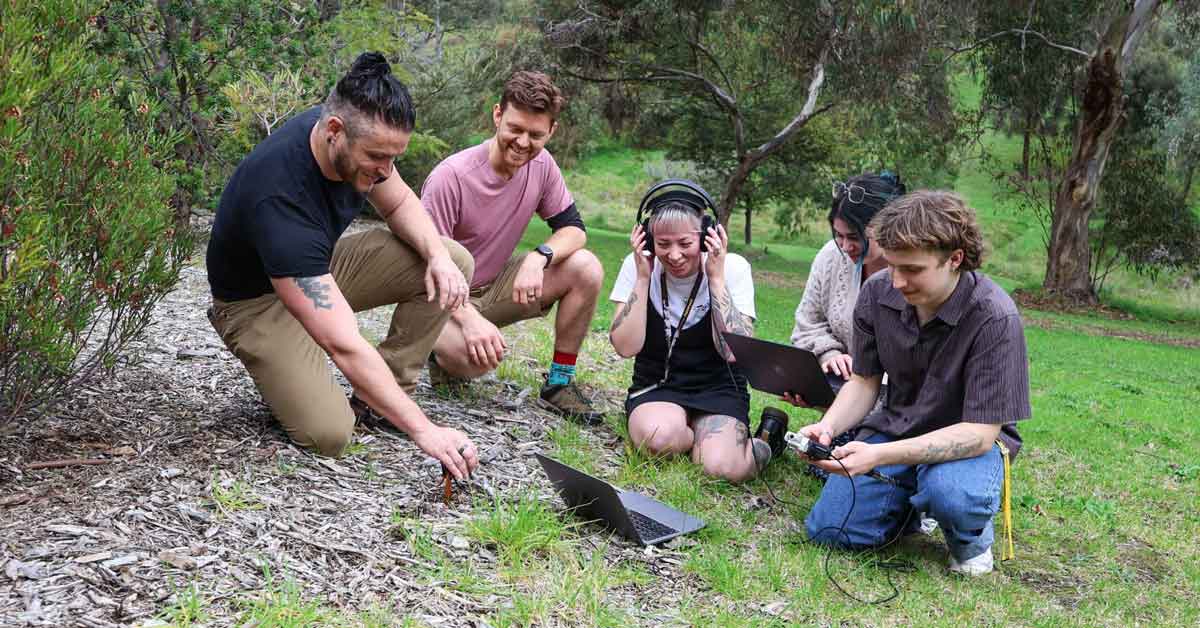On June 8, Highland Brewing in Asheville, North Carolina, was humming with excitement as locals gathered in “pollinator-themed costumes” for the Fourth Annual Honey Festival.
As people sampled honey, danced to live music by “Queen Bee and the Honey Lovers,” and entered the globally renowned Black Jar Honey Contest, the Center for Honeybee Research raked in donation after donation.
The sunny sight was in stark contrast to nine months prior, when the same brewery had “closed indefinitely” after Hurricane Helene wreaked havoc on the city.
The disaster, which displaced thousands, also hit local bees hard, too.
Jaik Smith, an Asheville Honey Fest organizer, told Spectrum News 13 that they lost “a significant amount” of bee populations in the storm. Especially honeybees.
“It's important to ensure that we are able to replenish the bees and make sure they're happy with pollinator gardens, and essentially just making sure we can buy more bees and get them back into our hives,” Smith said.
“We want people to know what they can do to take care of the honey bees, what everyone can do,” Drew Walls, another Asheville Honey Fest organizer, chimed in.
According to North Carolina State University, over 500 hives were lost across Western North Carolina in the aftermath of Hurricane Helene.
“Anecdotally, some beekeepers and their hives were left unscathed, others have been completely wiped out, with who knows how many in between,” NCSU apiculturist Dr. David Tarpy wrote in November 2024.
“There are some immediate efforts currently underway, such as the Greater Good Charities honey bee project to provide sugar syrup for starving bees (since much of the forage in the region has been stripped away).”
Although immediate attention was turned towards humanitarian aid and large-scale efforts to restore agriculture and livestock, Tarpy wanted to make sure that beekeepers and their colonies didn’t “fall through the cracks.”
“It is also clear that this recovery is going to take a protracted period to fully restore the environment and infrastructure in the region,” Tarpy said. “With that in mind, we propose an initiative to provide nucleus colonies and hive equipment to affected beekeepers starting next spring when new colonies are typically established.”
Tarpy and his colleagues at NCSU stayed true to their word. In the fall, they connected a dozen beekeeping groups across the state to counties affected by Helene.
Wake County Beekeepers Association, based in Raleigh, teamed up with the Harnett County, Johnston County, Lee County, and Moore County beekeepers associations to form the Ashe County Honeybee Recovery Project.
In a single weekend, 20 volunteers from the Ashe County Honeybee Recovery Project built 300 beehives, complete with 4,000 frames.
Stephen Ross of the Wake County Beekeepers Association said that bee conservation had widespread benefits.
“Why these beehives are so important is mostly because a lot of our food requires pollination, and to get them and allow them to produce fruit and vegetables ... even on a macro level scale, pollinators, such as honeybees, are very critical to the agriculture industry,” Ross told WRAL News.
“So even the bees in my backyard. They’re pollinating blueberries, blackberries, strawberries, squash, and other things that might be around in the area, and they're very critical to that.”
Beyond state lines, a family from West Virginia also stepped in to help with recovery, driving over 350 miles to the Toe Cane Beekeepers Association to help beekeepers post-Helene.
From a humble woodshop, they raised and donated a dozen “nucleus hives” — small, self-contained colonies containing a queen bee, worker bees, brood, honey, and pollen.

“My heart just broke for you guys,” said Charles Siers. “Dad is a beekeeper and runs a little woodshop, and I knew we could help out, so we talked to the club and found out what was needed right away and started building boxes.”
On May 19, the Toe Cane Beekeepers Association helped distribute another 45 nucleus hives to beekeepers hit the hardest.
During the Siers’ family’s donation, TCBA President Debbie Griffith said: “The storm took so much from us all, but it made us stronger with all the good that came afterward. Isn’t it amazing [that] there are people left in the world who help perfect strangers?”
[Editor’s note: the below section was updated on June 9, at 3:40pm]
What’s the nuance?
Honey bees, while important pollinators — and indispensable sources of income for countless beekeepers, farmers, and small business owners — are controversial figures in the world of environmental health.
As a non-native species that only arrived in the seventeenth century by way of European settlers, emerging data has shown that honey bees may be harmful to 4,000 native bee species across the U.S.
On the Xerces' Bug Banter podcast, Rich Hatfield — a senior endangered species conservation biologist and bumble bee conservation lead at The Xerces Society for Invertebrate Conservation — spoke at length about honey bee pollination, disease transmission, and competition with native bee species.
Hatfield clarified that while honey bees, in high densities, can have negative impacts on the environment and other bee species, they are also critical to the country’s current agricultural climate.
“A lot of farmers depend on renting or buying or having their own honey bees such that their crops can get pollinated,” Hatfield explained.
“Which happens throughout much of California, in a fairly early part of the year, when most of our native bees aren't even flying yet. There's no real way to get that crop pollinated unless we bring honey bees into the state of California.”
“But,” Hatfield cautioned. “I think it's important to just step back if I may just say, while our current agricultural system is dependent on honey bees, I don't think it needs to be that way, right? I think we could create a system that was different if we thought about our farming from a true sustainable perspective.”
“I think we just need to have those open conversations with each other and I don’t think beekeepers need to be shamed because they're beekeepers. It’s fine to be a beekeeper…I think we just need to have open conversations about it and find best practices together,” Hatfield added.
The bee expert concluded by saying that the best way listeners could help native bee species was to plant native flowers in backyards across America.
“If you own land or you rent property that has land, that has space that you can interact with, create messy, flowery landscapes as much as you possibly can, is what I would say,” Hatfield said.
“Have fun growing a bunch of native plants and grow the weirdest ones you can and just have fun with it.”
Header images via the Toe Cane Beekeepers Association



